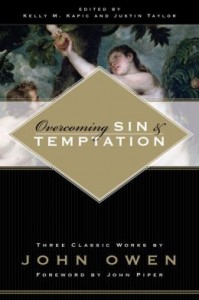Phillips, D.C. 2000. “Positivism” and “Social Construction of Knowledge.” In The Expanded Social Scientists Bestiary, pp.157-168, 187-207. (Rowman and Littlefield)
Week 5: Critiques of Positivism
Haraway, Donna J. 1997. Modest_Witness@Second_Millenium. Female Man_Meets_OncomouseTM: Feminism and Technoscience. (Routledge)
Non-Positivist Epistemologies: Social Constructivism
Latour, Bruno, and Steve Woolgar. 1991. Laboratory Life: The Construction of Scientific Facts. (Princeton U P)
Week 7: Epistemological Breaks in Science & Technology
Bijker, Wiebe A. 1994. Of Bicycles, Bakelites, and Bulbs: Toward a Theory of Sociotechnical Change. (MIT Press)
Week 8: Social Constructivism: Applications in LIS
Benoit, Gerald. 2002. “Toward a Critical Theoretic Perspective in Information Systems,” Library Quarterly 72 (4): 441-471
Frohmann, Bernd. 1997. Taking Information Policy Beyond Information Science: Applying the Actor Network Theory. (http://www.ualberta.ca/dept/slis/cais/frohmann.htm; accessed April 24, 2004)
Van House, Nancy. 2000. “Actor-Network Theory, Knowledge Work, and Digital Libraries.” (http://www.sims.berkeley.edu/~vanhouse/bridge.html; accessed April 24, 2004)
Week 9: Social Epistemology: Applications in LIS
Budd, John M. 2002. “Jesse Shera, Sociologist of Knowledge?” The Library Quarterly. Vol. 72 (4:2002): 423-440
Goldman, Alvin. 1994. “Argumentation and Social Epistemology,” Journal of Philosophy: 27-49.
Module II – Knowledge as Social Action
Week 10: Applied Social Science (The Praxis Approach)
Feagin, Joe R. and Hernán Vera. 2001. Liberation Sociology. (Westview Press)
Week 11: Social Worlds / Situated Knowledge
Goldman, Alvin. 1999. Knowledge in a Social World. (Oxford U P)
Butler, Cornelia Flora. 1991. “Reconstructing Agriculture: The Case for Local Knowledge,” Rural Sociology 57:92-97.
Smith, Dorothy E. 1999. “From a Women’s Standpoint to a Sociology for People.” In Sociology for the Twenty-First Century. Ed. J.L. Abu-Lughod, pp. 65-82. (U of Chicago P)
Module III – Epistemologies & Methodologies
Week 12: Interpretation
Panofsky, Erwin. 1957. “The History of Art as a Humanistic Discipline.” In Meaning in the Visual Arts. pp. 1-25. (Doubleday)
Week 13: Narrative
Kreiswirth, Martin. 2000. “Merely Telling Stories? Narrative and Knowledge in the Human Sciences,” Poetics Today 21:2:294-318
Week 14: Ethnographies & Histories
Erickson, Kirstin C. 2003. “’They Will Come from the Other Side of the Sea’: Prophecy, Ethnogenesis, and Agency in Yaqui Narrative,” Journal of American Folklore 116:462: 465-482
Olick, Jeffrey K, and Joyce Robbins. 1998. “Social Memory Studies: From ‘Collective Memory’ to the Historical Sociology of Mnemonic Practices,” Annual Review of Sociology 24 (1998): 105-140.
Additional Titles of Interest
Bowker, Geoffrey C., and Susan Leigh Star. 1999. Sorting Things Out: Classification and Its Consequences. (MIT Press)
Daston, Lorraine (ed.) 2000. Biographies of Scientific Objects. (U of Chicago P)
